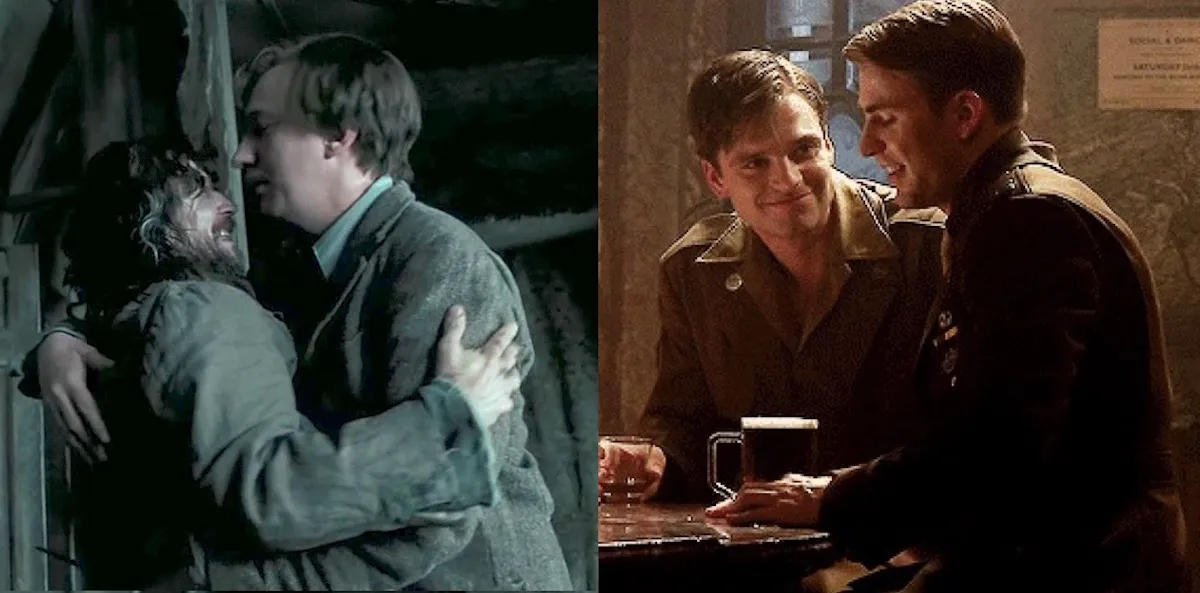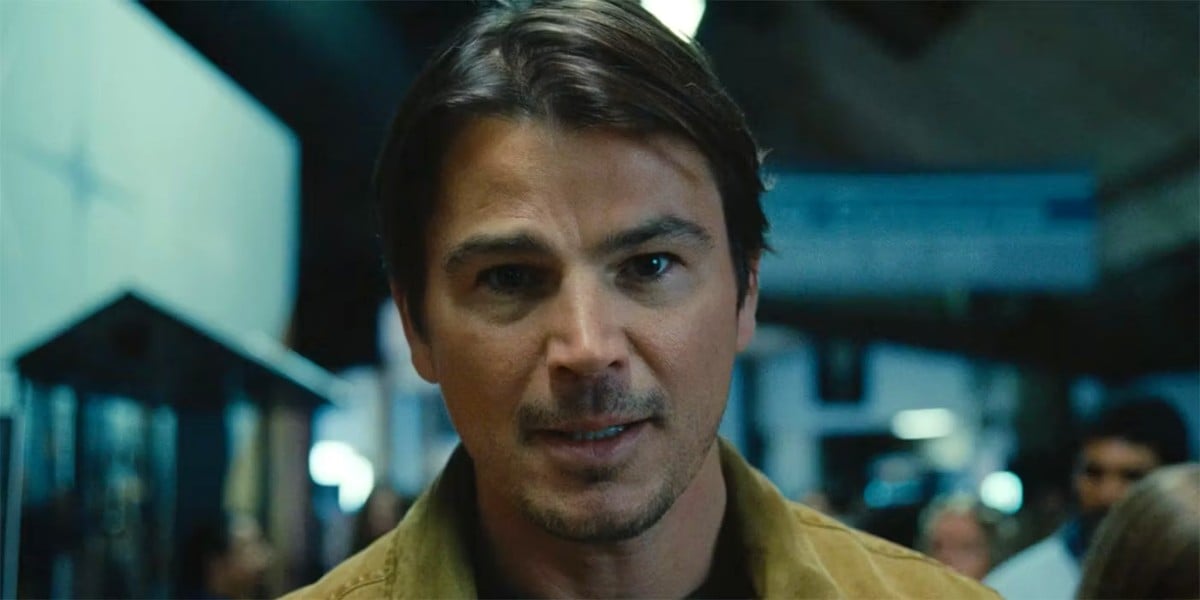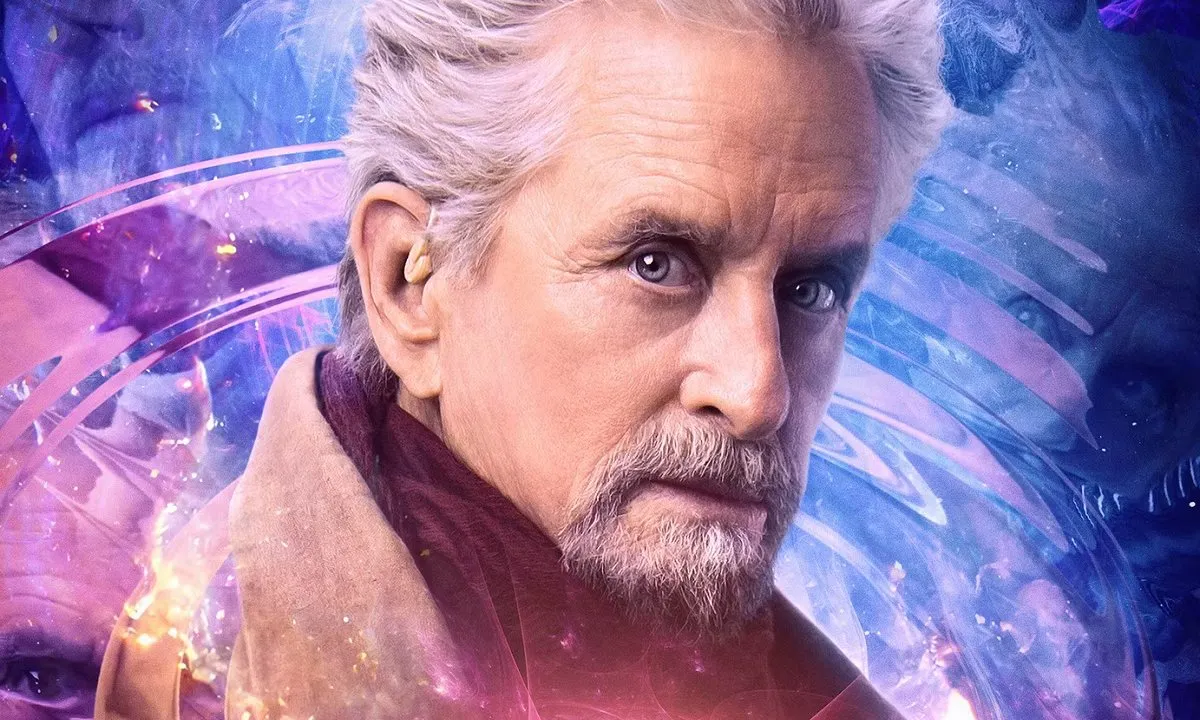As a teenager discovering my queerness in the early 2000s, it was rare to feel really represented in the media I consumed. As a fan of fantasy and genre fiction, it was even harder. When I found books with queer protagonists, the story was inevitably about the struggle of coming out, often followed by familial rejection and social isolation, sometimes salved by their beautiful first love, sometimes leading only to more tragedy.
When I wanted to disappear from my world into a more magical one, I had to leave behind any expectation of seeing the kind of relationship I wanted. It was a tradeoff I made often, because the fun of fantasy and adventure was infinitely more appealing than stories about how my attractions to other girls would lead me down a path of sorrow and loss.
So instead, like most of my generation, I threw myself into our pinnacle of magical escapism: the Harry Potter series.
At first, like a lot of smart, bookish young women, I figured that Hermione was the character I was most like. Even at a young age, though, I wasn’t always satisfied with the way J.K. Rowling cast her as the substitute mother for her male best friends in the absence of real parents at their school, always lecturing, always more prone to worry, and often obsessed with the rules.
Then, we were granted the gift of Remus Lupin. Here was a character who was thoughtful and erudite, but also humorous, with a streak of mischief that may not have been as pronounced as his friends’, but that was certainly strong enough for him to set up his old rival to be the laughingstock of the school while passing it off as an ordinary lesson. None of the students in Harry’s year will ever forget the image of Severus Snape in an old lady’s dress and ridiculous vulture hat, stumbling around on high heels, handbag swinging.
Of course, Remus Lupin was male. Since I have recently started to identify as non-binary and gender fluid, that’s less of an obstacle to my identification with him, but even as teenager, it didn’t really bother me, for the simple reason that I was used to identifying more with male characters than with female characters in a lot of the media I consumed.
For one thing, there are way more of them, so the law of averages dictates that I would also find more that I related to. For another, male characters tend to be more fully developed than female characters in a lot of media. Creators dedicate way more time to unpacking their motivations, their interests, their inner turmoil, their desires and fears. Their actions more likely than not drive the story, while female characters are along for the ride.
And then there was Lupin’s relationship with his “best friend,” Sirius Black—Sirius Black who is, in canon, incredibly handsome, but who we never see show any romantic or sexual interest in a female character. The guy with whom Remus Lupin gives Harry a joint Christmas gift in the fifth book. Again, in canon, the two can hardly take their eyes off each other when they are in the same room.
Rowling herself described lycanthropy as an analogy for heavily stigmatized blood-borne conditions like HIV and AIDS. While, of course, people of all sexual orientations have been affected by HIV/AIDS, its impact on the LGBTQ community is unique. We cannot forget that it was called “the gay disease,” that it decimated queer populations in the 1980s, and that much of the stigma that surrounded it when it was discovered—that still permeates its perception today—is based on the stigma around queer sex.
In that context, it seemed natural not just to me, but to many fans (and to Prisoner of Azkaban director Alfonso Cuarón) that Lupin, our werewolf posterboy, would be queer. It’s a subject for another post, but that’s also why it’s sort of offensive that Rowling so forcefully rejected the idea of a queer Lupin. She plumbed our community for trauma to lend depth to her writing, then refused to actually give us the corresponding, logical representation.
When Lupin resigns at the end of Prisoner, he tells Harry that, now that the secret of his werewolfism is out, parents won’t want someone like him teaching their kids. It’s a moment that echoes the same objections people have often had to openly queer teachers in schools, and as a teen who had been banned from friends’ houses when their parents found out I was queer because they worried I would somehow “turn” their kids, it emotionally bonded me more closely than ever to Lupin.
Lupin’s relationship with Black never became canon, but it has become one of the most popular ships in the Harry Potter fandom. The Sirius Black/Remus Lupin tag on Archive of Our Own returns over 13000 fanfic results. Rowling might not be willing to acknowledge it, but we in the queer community recognize one of our own.
We’ve come a long way in terms of queer representation in media, but sometimes the representation that feels the best is still non-canonical and unintentional. Take, for example, the case of Captain America and the Winter Soldier, or Steve Rogers and Bucky Barnes, in the Marvel Cinematic Universe. Their friendship reads like a love story, and not just any love story, but one that is truly epic in proportion, spanning decades of war, trauma, loss, and seemingly impossible reconnection.
Steve and Bucky parallel Remus and Sirius in interesting ways. Bucky and Sirius are represented as good-looking, somewhat rebellious, and more confident and outgoing, but intimately attached to their respective friends. Steve and Remus are mostly rule-abiding, except when those rules get in the way of actually doing what’s right, and are more thoughtful and less comfortable with the spotlight.
Like Sirius, Bucky disappears from Steve’s life for years, and when he first resurfaces, it appears to be as a villain. While Sirius turned out to be innocent, Bucky turned out to be under the influence of an invasive mind-control experiment that erased his memories and his former sense of right and wrong, but his bond with Steve is capable of undermining the power of that mind control when they are finally reunited.
Remus, Sirius, Steve, and Bucky are all deeply developed characters as individuals, and that is precisely what makes the intimacy written between them so compelling. None of them is simply a vehicle for another’s development, a fact that makes them more compelling than many of the female characters we get in media, despite the improvements of the past few years. At the same time, it’s clear how important their histories together are for each character’s development. Their emotional bonds feel real and deep in a way that is missing from any of their interactions with female characters.
The Halloween after Captain America: The Winter Soldier came out, my partner and I went as a genderbent Cap and Winter Soldier. We captioned our photos of that night with the words “When the films don’t give you the representation you want, be the gay you wish to see in the world.”
Like me, my partner was used to being dissatisfied with the emotional depth of female characters and the lack of queer relationships in media. Relationships like Steve/Bucky and Remus/Sirius give us the emotional depth and intimacy we want, with characters we relate to and care about. All we have to do is fill in a few blanks to finally feel like we see ourselves.
(image: Warner Bros./Marvel)
Laura Muth is a queer feminist writer and nerd currently based in the Pacific Northwest. They love politics, international affairs, and pop culture (the queerer the better). When they’re not writing, they like backpacking, Muay Thai kickboxing, and attempting to befriend every dog they see on the street. Their previous work can be found at War is Boring, Defiant, Reverb Press, and Shadowproof.
Want more stories like this? Become a subscriber and support the site!
—The Mary Sue has a strict comment policy that forbids, but is not limited to, personal insults toward anyone, hate speech, and trolling.—








